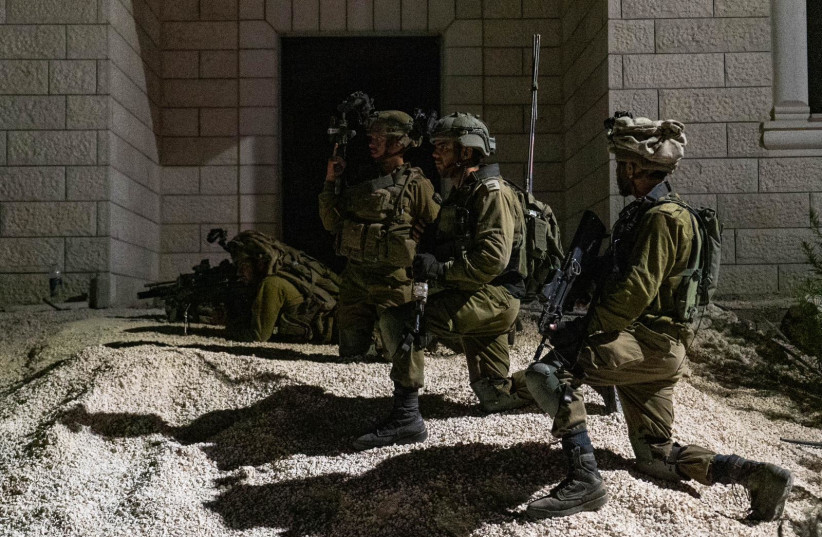Hints are growing that the IDF will carry out some kind of mini-Operation Defensive Shield in Jenin and potentially other specific areas of the West Bank.
The IDF, Defense Minister Yoav Gallant and Prime Minister Benjamin Netanyahu do not want this though. In fact, they have meticulously avoided getting dragged into a major operation for several months, despite regular calls from National Security Minister Itamar Ben-Gvir and Finance Minister Bezalel Smotrich to do so.
And it still seems unlikely, as things currently stand, that the IDF would undertake a full-scale Operation Defensive Shield II for several months. It would not only draw condemnation from the US and the EU, but could deflate or freeze the Abraham Accords.
And that is only at the diplomatic level.
At the military level, The Jerusalem Post understands that the majority of the IDF brass do not want such a wide and open-ended operation.

They are not sure that the IDF, as it currently stands, would be up to the task. Furthermore, they believe the number of casualties on both sides could balloon.
IDF does not want conflict with Hamas
They also believe that the Palestinian Authority would collapse, to be likely replaced by Hamas.
However upset Israel and the IDF are with the PA for going after them in the International Criminal Court, no one in the security establishment actually views “legal terrorism” or “diplomatic terrorism” as anywhere near as bad as violent terrorism – which is what Hamas would bring. The IDF would much rather deal with the PA and the ICC in the West Bank, than with Hamas.
For that reason, the IDF and the Shin Bet have carried out gradual operations against terror cells in the West Bank.
They have used more troops, demolished more houses of terrorists’ families and have put more Palestinians in administrative detention than at any time since 2006.
Even at the height of the Knife Intifada of 2015-2016, administrative detainees only jumped from a few hundred to around 750, whereas now they are over a thousand.
But these changes are relatively small. And what we have seen this past week are changes of a completely different magnitude.
Using attack helicopters to fire missiles to rescue ambushed troops is a big change. Ordering a drone to fire missiles to blow up a terror cell as it is driving away from a shooting incident is a bigger one.
Do these incidents, one after another, mean that targeted attacks with helicopters and drones could start to become a regular pattern in the West Bank?
IDF Spokesman Brig.-Gen. Daniel Hagari said “no” on Wednesday night, but it was a soft “no,” seeming to apply only to the immediate situation.
Netanyahu said in a video address on Thursday that Israel flipped the equation on its head when it comes to dealing with Palestinian terrorism using drones.
“We constantly surprise them,” he said, “we are constantly flipping the equation. We have done it during Operation Shield and Arrow and we did it again last night in Jenin.” What happened in Jenin was a success, he added, because Israel “dealt with it using the element of surprise.”
For Hagari, there was no broad denial that more such high-level uses of force will follow in the coming weeks or months to bring down the terror wave, if nothing else works.
Moreover, the Post has received indications from multiple officials that a potential mini-Defensive Shield of a few days, only in Jenin, or only in Jenin, Nablus and one or two other specific areas – could be in the works.
If this is done fast enough, and with low casualties, the image of a war in the West Bank resembling one in Gaza, could be avoided.
In other words, the hope would be to avoid a PA collapse, creating new problems with the ICC and diplomatic issues with the US, EU and Abraham Accords countries.
Can this work? Could Israel manage such a “mini-escalation” without the ensuing Palestinian response leading to a major escalation?
It is unclear and this is one reason why Israel still has not gone for it. But as the terror wave continues and the security forces fail to contain it, a “mini-escalation” is starting to be discussed more seriously.
Jerusalem Post Staff contributed to this report.
